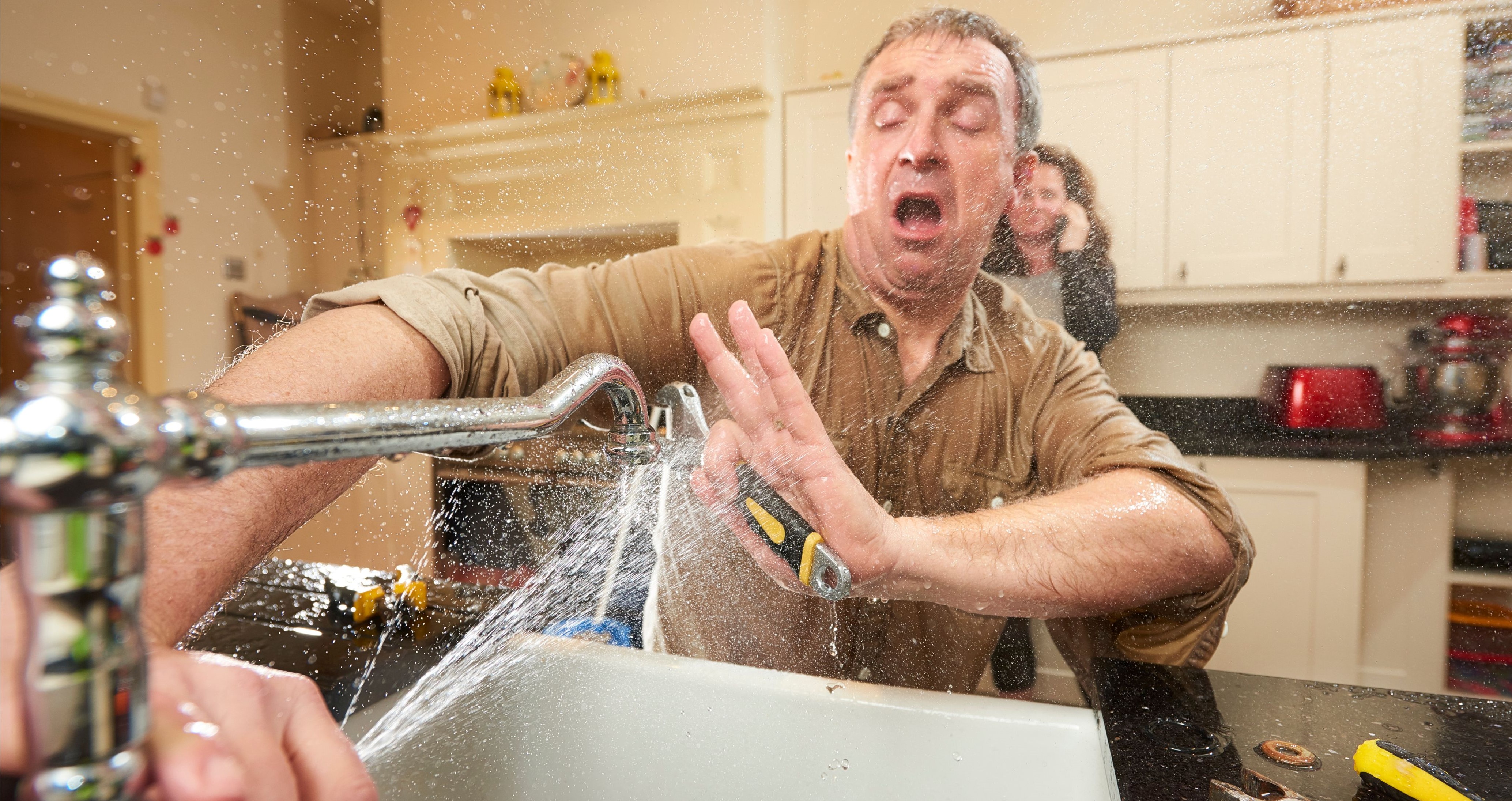As we approach summer, the days are getting longer, there’s more light in the evenings, and it may feel like the perfect time for you to tackle those household jobs that you’ve been putting off. However, DIY can very easily become costly, stressful and dangerous if you’re not careful and well-informed. While most of us may feel confident with a paintbrush or hanging a new shelf, when it comes to work on your plumbing and heating systems, there are some tasks you’re better off leaving to the professionals.
Plumbing mishaps top the list of DIY disasters. They can lead to extensive water damage or water contamination, both of which can be dangerous for your health. DIY on heating systems is a definite no, with incompetent work leading to potentially deadly issues such as carbon monoxide poisoning or gas leaks.
If things go wrong, it could also cost you a lot of money. Plus, if you don’t declare it, your home insurance policy may not cover accidental damage such as a nail through a water pipe. So, unless you have the knowledge and experience to undertake work on plumbing and heating systems, it’s probably not worth taking chances.
While there is a lot we can do to give our properties some TLC it’s important to be cautious when it comes to tackling those more complex projects. So, here are the dos and don’ts for your summer DIY projects.
Do:
- Label and test your stop valve.
Make sure you know the location of the stop-valve (stop cock) on the incoming water supply main. Test that you can easily turn it on and off and that it shuts off the water supply completely then label it so everyone in the household knows where it is. Faulty valves will need replacing by a professional – don’t ignore any issues as this stop-valve could be the only thing standing between you and substantial water damage should you suffer a burst pipe or leak.
- Inspect your guttering, downpipes and drains
Fallen leaves, moss and other debris may have built up over the winter months and blocked gutters and grilles on drains. Look out for damp patches on walls where guttering could be overflowing, or dripping joints, as these are sure signs your gutter is in need of attention. In most cases, guttering will need to be cleaned. For those in bungalows, it is a relatively straightforward job however, if your home has two storeys or more, then it involves working at heights and you should call in a professional.
Make sure you check grilles on any surface water or foul water drains. While keeping in mind good hygiene, remove leaves and debris to make sure the water from your gutters and external pipework can flow freely into your drainage system.
- Focus on water efficiency
One thing you could tackle is any dripping taps. Ignoring a leaky tap is not only harmful to the environment but it adds up financially. On the plus side, it often requires little or no investment to remedy the problem. Outside taps are frequently overlooked so they can become the culprit of water waste. Sometimes all that's needed is a little tightening but if your tap keeps dripping or stops working altogether, call in a professional.
You might also want to install a water butt. Collecting rain in a water butt is a great way to ensure you’ve got a sustainable source of fresh water for when the weather gets a little dry. It’s important to keep safe from bacteria which can spread when water butts get warm, so keeping them in a shaded spot can help slow bacteria growth and using a watering can – rather than a hose – helps prevent bacteria from being dispersed in water droplets.
- Insulate your pipes, tanks and water cylinders
Why not get ahead on preparations for next winter by ensuring all exposed pipework is protected from freezing and bursting? Double check pipes in your loft space and don’t forget any outside taps. Lagging is relatively inexpensive to buy and simple to fit.
Now is also a great time to adequately insulate any water storage tanks. You can save money on your energy bills by ensuring hot water cylinders (if you have one) in airing cupboards are insulated with a cylinder jacket too. If in doubt call in a professional.
Don’t:
- Attempt jobs you are unqualified to do
- Attempt tasks at height
- Drill through walls without first checking for pipework or electrics
So, what should you keep in mind when tackling future DIY jobs? Focus on the tasks you’re comfortable with but – if at any point you feel out of your depth – contact a quality professional to ease the stress and financial burden of something going wrong.
If you experience a DIY disaster and need to find a professional plumbing or heating engineer, use our find a plumber online tool, or visit our plumbing emergencies page for advice.

